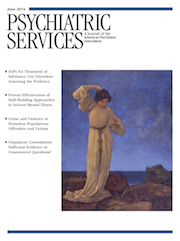Advance Statements for Borderline Personality Disorder: A Qualitative Study of Future Crisis Treatment Preferences
Abstract
Objective
Little is known about the crisis treatment preferences of people with borderline personality disorder. Clinicians may also question service users’ ability to make considered decisions about their treatment when in crisis. Therefore, this qualitative study aimed to investigate crisis treatment preferences of a sample of community-dwelling adults with borderline personality disorder.
Methods
Participants were 41 adults with borderline personality disorder who had created joint crisis plans during a randomized controlled trial. Data from all 41 joint crisis plans were analyzed iteratively via a thematic analysis framework.
Results
Participants gave clear statements in their crisis plans relating to the desire to recover from the crisis and to improve their social functioning. Key themes included the desire to be treated with dignity and respect and to receive emotional and practical support from clinicians. Many participants spoke of the importance of connecting with others during periods of crisis, but several reported a clear desire to be left alone during a future crisis. Other themes concerned preferences for specific treatment refusals during crises, including particular types of psychotropic medication and involuntary treatment.
Conclusions
The variation of participants’ preferences underscores the importance of developing individually tailored crisis plans for people with borderline personality disorder. The need to be treated with dignity and respect and to be given autonomy in decision making—also identified in global surveys of people with severe mental illness—is important to people with borderline personality disorder. Key messages for clinicians, service users, and policy makers, in addition to staff training issues, are discussed.



